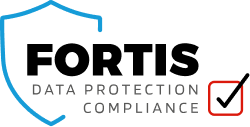Establishing Best Practices in Data Security and Patient Trust
The Data Security and Protection Toolkit (DSPT) is a critical framework designed to ensure that care providers, including those in the health and social care sectors, adhere to stringent data security standards. Compliance with the DSPT is not simply a bureaucratic formality, but a cornerstone of maintaining the integrity, security, and confidentiality of patient data.
Our guide explores why care providers must comply with the DSPT and the broader implications of such compliance on their operations, reputation, and the welfare of their patients.
What is the DSPT?
The DSPT is a self-assessment tool that allows organisations to measure their performance against the National Data Guardian’s data security standards. It is compulsory for all organisations that handle NHS patient data and systems, ensuring that they handle data securely and protect patient confidentiality. The toolkit covers a wide range of requirements, ranging from basic data protection measures to advanced cyber security protocols.
Key Elements of the DSPT
- Governance and accountability: Policies that ensure that senior management is accountable for data security.
- Operational security: Measures that safeguard the IT infrastructure against cyber threats and vulnerabilities.
- Data security standards: These standards ensure that patient data is protected from unauthorised access and breaches.
- Training and awareness: Programs to ensure that all staff understand their responsibilities in protecting patient data.
Why Compliance is Essential
Protecting Patient Data
DSPT’s primary goal is to protect sensitive patient data from breaches and unauthorised access. Care providers handle vast amounts of personal health information, which, if compromised, can lead to negative consequences for patients, including identity theft, fraud, and a loss of privacy. By adhering to DSPT standards, care providers ensure that they are implementing the best practices in data security, thereby safeguarding patient information.
Legal and Regulatory Obligations
Compliance with the DSPT is legally mandated for care providers that process NHS patient data. Failing to comply can result in severe legal repercussions, including fines and sanctions from regulatory bodies such as the Information Commissioner’s Office (ICO). Furthermore, non-compliance can impact the organisation’s ability to access NHS funding and partnerships, which are crucial for operational sustainability.
Establishing Patient Trust
Trust is a key component of the patient-care provider relationship. Patients are more likely to be open and honest in their interactions with care providers when they know that their personal health information is handled securely. This transparency is essential to provide the appropriate diagnosis and treatment. Compliance with the DSPT demonstrates a care provider’s commitment to protecting patient data, thereby enhancing trust and fostering a more open and effective care environment.
Improving Operational Efficiency
Adhering to DSPT standards requires organisations to review and optimise their data management practices regularly. This process can reveal inefficiencies and areas for improvement in how data is handled and secured. By streamlining these processes, care providers can achieve greater operational efficiency, reducing the risk of data breaches and the associated costs of such incidents.
How Your Care Organisation Can Achieve DSPT Compliance
Perform a Self-Assessment
The journey to DSPT compliance begins with conducting a thorough self-assessment using the toolkit. This involves evaluating current data protection measures against the DSPT standards and identifying areas of non-compliance.
Implement the Necessary Improvements
Based on the results of the self-assessment, care providers must implement necessary changes to meet the DSPT requirements. These may include updating policies, enhancing IT security measures, and providing additional training for staff.
Train Staff
It is vital to ensure that all staff members are aware of their responsibilities regarding data security. Conduct regular training sessions to keep employees informed about the latest data protection practices and the importance of complying with the DSPT standards.
Monitor and Improve
DSPT compliance is not a one-time activity; it is an ongoing process. Care providers must continuously monitor their data protection measures and make improvements when required to remain compliant with the latest standards and regulations.
The Wider Impact of DSPT Compliance
Creating a Culture of Security
Compliance with the DSPT fosters a culture of security within an organisation. When data protection becomes a priority at all levels, from senior management to frontline staff, it creates an environment where security is integral to all operations. This cultural shift can lead to better overall security practices and a more resilient organisation.
Enhancing Overall Security Posture
Adhering to the DSPT standards enhances the overall security posture of the organisation. By implementing robust data protection measures, care providers can protect not only patient data but also other sensitive information within the organisation, such as financial records and employee data.
Reputation Management
Data breaches are a common threat in today’s digital age and can significantly damage an organisation’s reputation. News of a data breach can spread quickly, causing loss of trust among patients and stakeholders. By complying with the DSPT, care providers can demonstrate their commitment to data security, thereby protecting and enhancing their reputation.
Supporting the Healthcare Ecosystem
Finally, compliance with the DSPT supports the broader healthcare ecosystem. When all care providers adhere to the same high standards of data protection, it creates a more secure and trustworthy environment for sharing and managing patient data. This collaboration is essential for advancing healthcare outcomes and ensuring the privacy and security of patient information across the system.
Conclusion
In conclusion, compliance with the Data Security and Protection Toolkit is mandatory for healthcare organisations. The DSPT ensures legal and regulatory adherence, safeguards patient data, builds trust and enhances the organisation’s reputation. DSPT compliance not only protects patients’ data, but also contributes to a more secure and robust healthcare ecosystem. Ongoing monitoring, regular staff training and fostering an environment of security are the most important components needed to maintain the highest standards of data protection.
How Fortis DPC Can Help You
We can support you with completing the standard – whether that is meeting standards or exceeding standards – whichever is required by your care business. We can perform the mandatory audit and submit it ahead of the deadline.
Book your free consultation today.


0 Comments